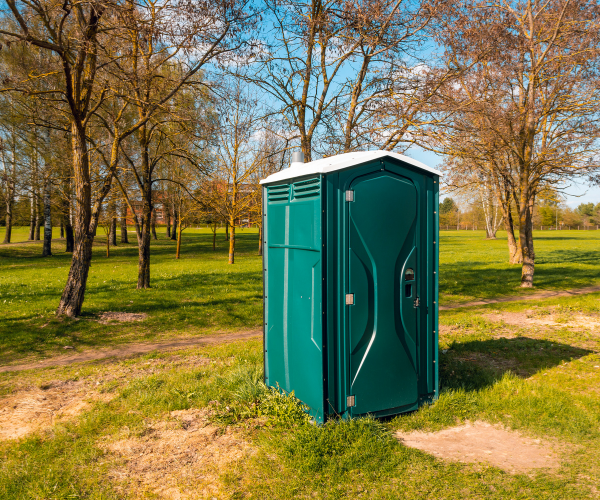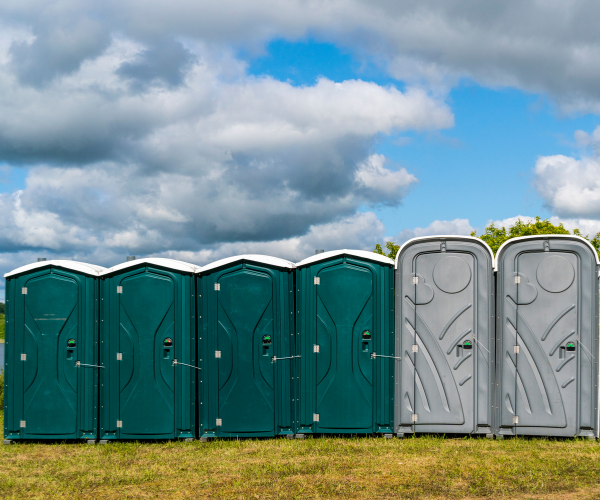Portable toilets are not only a convenient solution for outdoor events and construction sites but also offer significant eco-friendly benefits. One of the primary advantages is water conservation. Traditional toilets can use up to seven gallons of water per flush, whereas portable toilets utilize non-potable water in a contained system, drastically reducing water usage. Moreover, these toilets are designed to minimize waste by containing it efficiently; the waste is later treated at specialized facilities that adhere to environmental regulations.Another eco-friendly aspect is reduced pollution. By using portable toilets, particularly at large outdoor events, the potential for human waste polluting natural surroundings is minimized. This is especially beneficial in environmentally sensitive areas. Additionally, the latest portable toilets are built with biodegradable materials and environmentally safe chemicals for treatment, making them more sustainable than ever before. These eco-friendly operations extend to using solar panels for powering facilities in some advanced units.Companies providing portable toilets also contribute to eco-friendliness by optimizing their logistics. Delivery routes and service schedules are carefully planned to use the least amount of fuel possible, reducing carbon footprints. Furthermore, many portable toilet service providers engage in recycling programs for waste materials collected during maintenance.In summary, portable toilets offer a cleaner, safer, and more sustainable alternative to traditional restrooms, especially where conserving natural resources is a priority. Their adoption can significantly lessen the environmental impact of human activities, allowing event organizers and site managers to support eco-conscious practices without compromising convenience or hygiene.

Portable Toilet Rentals in Fletcher, North Carolina
Call today for a free quote (828) 576-3285
Portable Toilet
Fast, Easy, & 100% Free To Get Started
25 Years of Experience
For over two decades, Fletcher Portable Toilets has been a trusted name in the community, offering quality services rooted in local expertise. We are dedicated to maintaining high standards and fostering strong community ties in Fletcher.
Premium Quality Service
Our commitment to quality ensures that each portable toilet is meticulously maintained, providing a clean and comfortable experience. We prioritize your satisfaction, tailoring our services to meet your specific needs.
Rapid Delivery Service
Our logistics team excels in swift delivery, letting you concentrate on your event's success. We manage everything from order to setup, offering seamless service to ensure satisfaction.
Reliable Portable Toilet Solutions in Fletcher
Call for a Free Quote Today
(828) 576-3285
At Fletcher Portable Toilets, we are proud to be a locally owned and operated business, renowned for our dependable and reliable service. Our top-notch portable toilets are perfect for events of all sizes, from bustling construction sites to elegant weddings and lively festivals. Serving Fletcher and the surrounding areas, we ensure the highest standards of cleanliness and punctuality. Our dedicated team is committed to delivering excellent customer service, providing tailored solutions to meet the unique needs of your event. With years of experience under our belt, we offer the best services in town, ensuring a seamless experience for your guests. Choose us for a hassle-free, professional portable toilet rental service that you can count on.


Our standard porta john rental units are durable and reliable for any commercial build site, housing development, public works project, or remodel job.Features include dome lighting, grated floors, and an “In-Use” locking mechanism for privacy and comfort. Regularly maintained, inspected, and cleaned by FusionSite at your location.

Developed as an alternative to full ADA-compliant restrooms, the Liberty is a spacious, wheelchair-accessible unit that can also be promoted as a family-sized restroom. Includes a patented flat-floor system for easy wheelchair access and maneuverability.Handrails, paper holder, and rotary latch are designed for simple, intuitive end-user operation.

Portable hand washing stations are essential for keeping your work site sanitary and clean. Features hands-free foot pumps, liquid soap, and paper towels.Perfect for job sites without water hookups, these units can handle hundreds of washes between services.
We Proudly Serve
Standard Portable Toilets
Our Standard Portable Toilets provide clean and convenient sanitation solutions tailored to events of all sizes across North Carolina.
High Rise Portable Toilets
High Rise Portable Toilets ensure efficient and hygienic waste management solutions at lofty construction sites in Fletcher.
Restroom Trailers
Restroom Trailers in Fletcher offer luxurious, spacious facilities for events, elevating convenience and comfort during any occasion.
Roll off Dumpsters
Efficient Roll-Off Dumpsters from Griffin Waste in Fletcher simplify waste management with prompt delivery and easy access for cleanup.
Septic Tank Cleaning
Griffin Waste offers expert septic tank cleaning, maintaining efficient waste systems across North Carolina with precision and care.
Grease Trap Cleaning
Our specialized Grease Trap Cleaning in Fletcher ensures your culinary facilities comply with health regulations and run smoothly.
Fencing & Barricades
Fencing & Barricades services in Griffin Waste provide security and orderliness for all types of events throughout North Carolina.
Residential Storage
Fletcher's Residential Storage solutions offer safe, flexible options to meet diverse storage needs with the utmost convenience.
Fletcher Portable Toilet and More
Obtaining a quote and arranging delivery for a Portable Toilet in Fletcher is straightforward and convenient. Our website hosts easy navigation with forms available at both the top and bottom of every page, ensuring you have quick access to all necessary information. Simply fill out your basic details and click our prominent 'Get A Quote' buttons that are strategically placed for your ease. Thanks to our user-friendly approach, the entire process is designed to be seamless and efficient, saving you time and effort. Once your delivery is arranged, our dedicated logistics team ensures that your portable toilet arrives punctually, so you can focus on the success of your event. Rest assured, with our commitment to excellence and customer satisfaction, your rental experience will be nothing short of smooth and enjoyable.

Nestled in the beautiful community of Fletcher, our Portable Toilet services are perfectly tailored to enhance local gatherings around iconic landmarks like Fletcher Community Park and annual events such as the Fletcher Easter Egg Hunt. Surrounded by lush outdoor sights and vibrant community activities, Fletcher is an ideal spot for events that demand top-tier portable sanitation solutions. Whether you're organizing a lively festival or an intimate outdoor wedding, our meticulously maintained units ensure comfort and reliability for all your guests. Our local expertise and dedication to quality mean we understand the unique needs of the Fletcher area better than anyone else. We prioritize providing a clean, dependable experience that complements Fletcher's natural beauty. Let us elevate your event by delivering top-notch portable toilets that are both reliable and convenient, making us the leading choice for sanitation services in this picturesque setting.
Fletcher Portable Toilets is the premier choice for sanitation services in Fletcher. Our extensive experience and local ties allow us to offer unparalleled quality and dedication to customer satisfaction. Being community-focused, we provide services that meet and exceed the expectations unique to Fletcher's vibrant lifestyle. Whether you're organizing a community festival or a private event, our expertly maintained portable toilets meet the highest standards.Our commitment lies in delivering clean, reliable units in a timely manner, ensuring satisfaction for every occasion. Choose us for our superior service and benefit from firsthand knowledge of Fletcher's diverse event needs. Trust the local experts who truly care about your community.
At Fletcher Portable Toilets, swift and reliable service is at the heart of everything we do. Thanks to our highly efficient logistics systems, we ensure that your portable toilets are delivered promptly and maintained to the highest standards. Our commitment to fast service does not sacrifice quality; each unit is rigorously cleaned and prepared for use as soon as it arrives on-site.Hold your events with confidence knowing our durable and well-maintained portable toilets will be there on time. We understand the dynamic needs of rapidly growing Fletcher businesses and residences, and our dedicated team works closely with each client to guarantee punctual and reliable service every time. Enjoy peace of mind as we enhance your event with top-tier portable sanitation solutions.
Fletcher Portable Toilet Insights
Renting a portable toilet in Fletcher has never been easier, thanks to our streamlined process designed to save you time while ensuring quality service. To start, visit our user-friendly website where detailed forms are placed prominently at the top and bottom of the page. These forms require just a few basic details: your first name, last name, phone number, and email. Alternatively, when browsing our website, you will notice multiple 'Get A Quote' buttons.Clicking any of these will take you directly to the dedicated section where you can submit your requirements and get an instant quote. This feature ensures that you can inquire about pricing and availability at any stage of browsing. Once your details have been submitted, our team of experts will promptly handle your request, providing clear communication every step of the way.Our efficient team not only confirms your order swiftly but also collaborates with you to arrange a delivery time and location that perfectly suits your schedule. We prioritize seamless transactions to ensure your portable toilet arrives promptly and to your specifications.The combination of our streamlined online process and personalized customer service allows us to stand out as a leading portable toilet provider in Fletcher. Reach out today, and let us take care of your sanitation solutions with ease and professionalism.
When you order a portable toilet from us, we understand the importance of receiving it promptly to ensure your event or work site runs smoothly. Typically, our delivery timeframe ranges from 24 to 48 hours after your order is confirmed. This commitment to speed is thanks to our dedicated logistics team, strategically sized fleet, and detailed scheduling that accommodates the dynamic needs of our clients.Once your order is placed, our experienced team works diligently to assess your requirements, pinpoint the ideal delivery time, and dispatch a unit that aligns with the specific demands of your project or event. Our local expertise in Fletcher allows for flexible delivery options and accessible service, ensuring that we can accommodate your needs even during peak demand periods.On top of this, our exceptional customer service ensures you stay informed of delivery status, allowing for any necessary adjustments so everything aligns with your expectations. The resultant collaboration allows us to consistently meet your needs and ensure timely delivery of high-quality portable toilets. Let us help you deliver success by providing efficient and reliable portable sanitation services today!
Yes, we proudly offer services for a wide array of events and construction sites. No matter the scale or nature of your occasion, we are equipped to meet your sanitation needs with our extensive inventory of solutions. From lavish weddings and bustling corporate events to family reunions and vibrant festivals, our units cater to settings of all kinds.Our luxury restroom trailers bring added comfort and elegance to special occasions, while our porta potties serve high-traffic locations efficiently. For construction sites, we provide durable roll-off dumpsters and sturdy fencing to ensure proper site maintenance and safety.We also offer ADA-compliant units, portable sinks, and hand sanitizer stations to guarantee accessibility and hygiene are maintained. Our capability to customize services based on specific event requirements sets us apart as a versatile and dependable partner.Our multifaceted offering ensures all your sanitary needs are covered, allowing you to focus on running a successful and memorable event. Turn to us for a complete range of services that ensure the comfort and satisfaction of every guest and worker.

